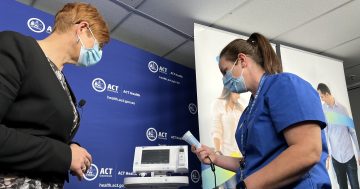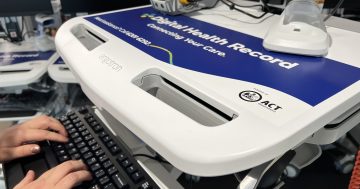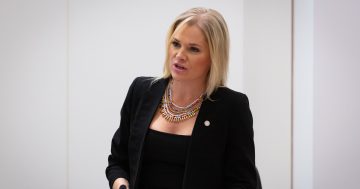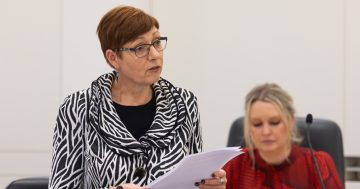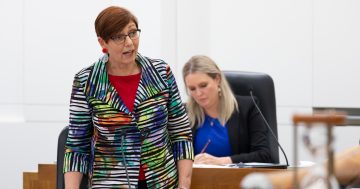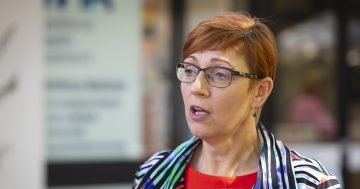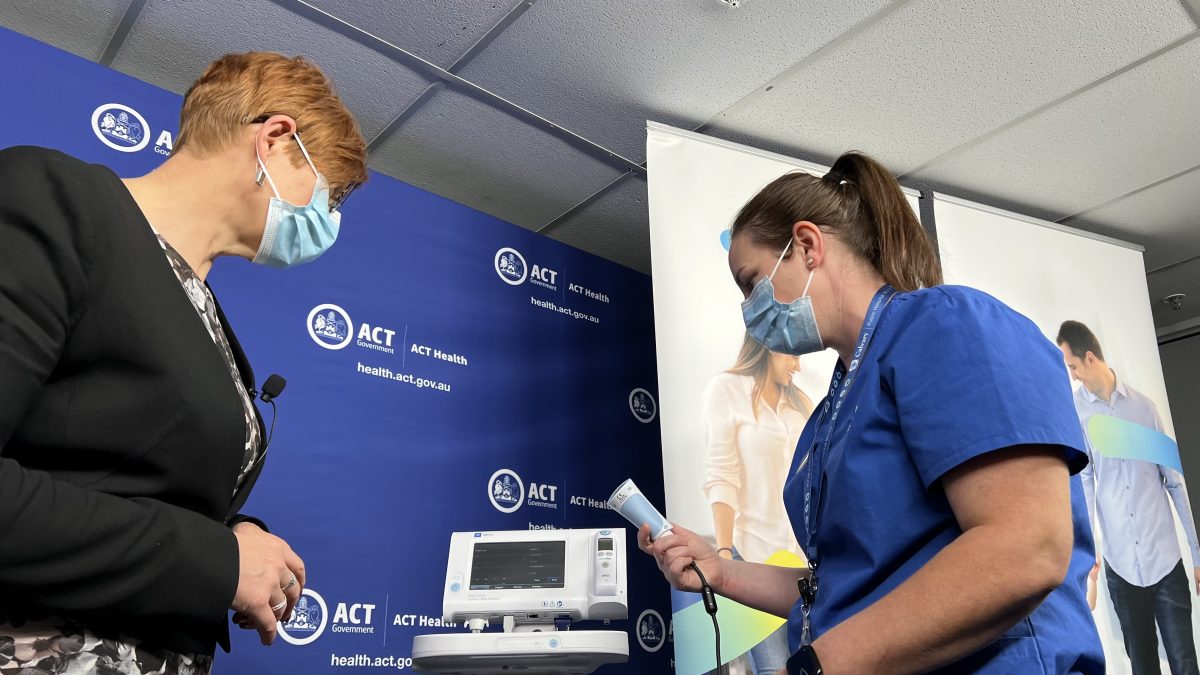
Health Minister Rachel Stephen-Smith discusses the DHR rollout with clinical nurse consultant at Calvary Hospital Rowena Hogan. Photo: Lottie Twyford.
Authorities are at pains to stress the rollout of a new Territory-wide health records system has gone better than it could have and any bumps will be smoothed out in coming days and weeks.
That’s despite the fact 75,000 people received notifications through the Digital Health Record about past or incorrect appointments and a small number received notifications about medical information that was not their own.
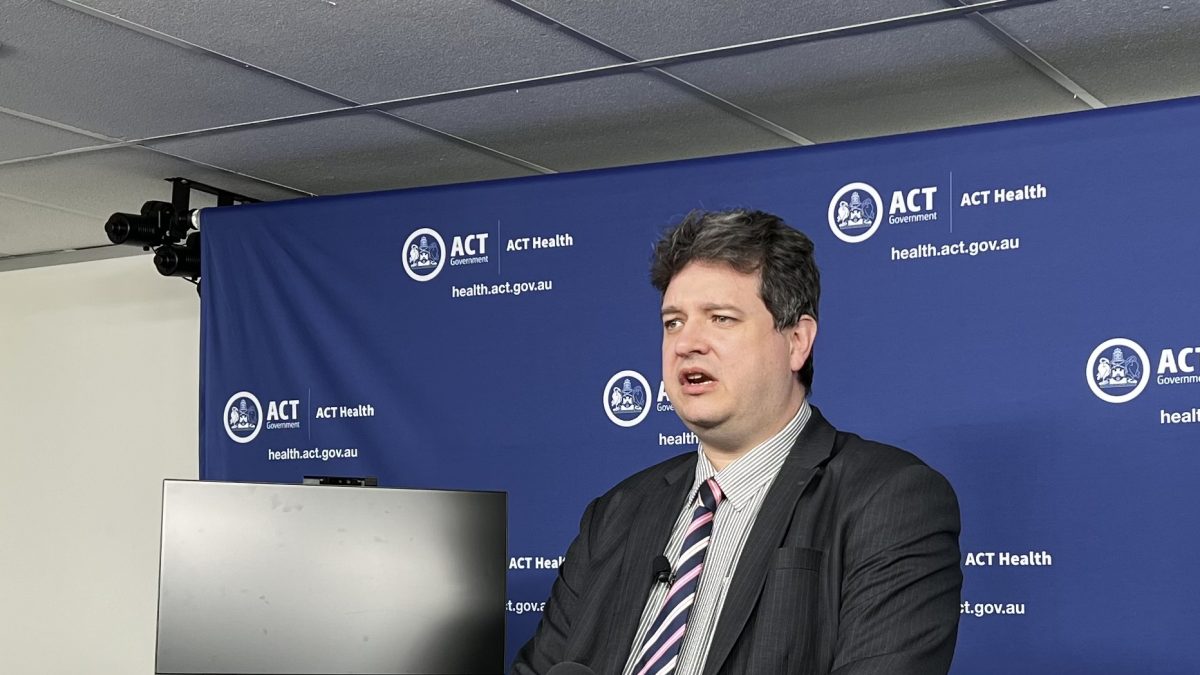
ACT Chief Health Information Officer Peter O’Halloran said it was always going to be a challenge to roll out a new system, no matter when it happened. Photo: Lottie Twyford.
ACT Health Chief Information Officer Peter O’Halloran said one of the reasons for these erroneous messages had been because many of the 186,000 app users who signed up during COVID-19 also signed up family members.
Sometimes, this meant using their own email address and phone number for someone else.
“We’re dealing with those as they come up,” Mr O’Halloran said.
“We’ve also looked at all the records and gone through and identified the very small number where it does look like they were merged incorrectly with other patients … and that was fewer than five.
“Issues are being dealt with immediately … and we do encourage anyone who thinks their records may have been incorrectly merged to get in contact with us.”
Some Canberrans have already expressed concerns about the security of the system, particularly after receiving messages they believed were scams earlier this week.
Mr O’Halloran acknowledged these concerns but said most feedback had been positive.
“The rollout has gone reasonably well so far and I note it’s been a lot less bumpy than at other sites.”
He said years of work had gone into preparing for the go-live and while “nothing was perfect”, steps had been taken to ensure the data was secure.
This included the directorate hiring third-party companies to try and penetrate the system’s defences.
He stressed the servers which stored the information held in the digital health record were located physically in the Territory “with strong physical protections” around them.
He said no data was stored on the cloud and no-one had yet breached the system’s defences.
The nurses’ union has raised concerns about the increased workload for its members at what is already a stressful time.
But Mr O’Halloran said there was never really a good time to implement a new system, noting Melbourne had rolled out the new record at the peak of the Omicron wave.
“For a couple of weeks it’s bumpy and painful but after that, they are seeing benefits,” he said.
Clinical nurse consultant at Calvary Hospital Rowena Hogan described the last six days as “full on” as new challenges had arisen.
“I won’t lie and say it hasn’t been stressful … and there were stressful times [but] patient care and outcomes haven’t been impacted to my knowledge,” Ms Hogan said.
“I didn’t see any adverse outcomes so I didn’t feel like I had added workload.”
But Ms Hogan said she had been slightly taken away from her management role.
She said early noticeable benefits of the system included the ease of doing patient handovers and securely chatting to doctors about a patient’s needs.
Health Minister Rachel Stephen-Smith also acknowledged these bumps in the road but said the positive feedback was already rolling in.
“It’s improving patient care and efficiency across the board,” she said.
More than 8000 people have now logged on to the new system which has replaced more than 40 different systems across public health services in the Territory.












